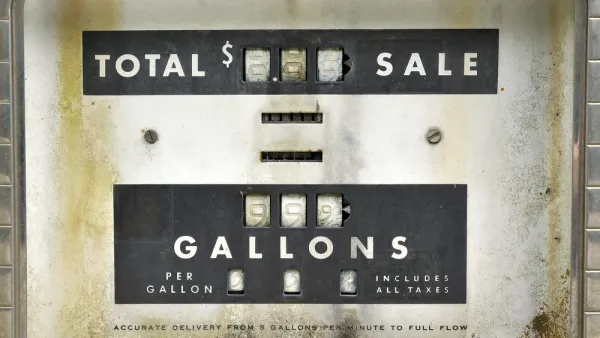With the Crimean referendum just days away, President Obama hopes that economic sanctions will cause Russia to back-off its threatened annexation from Ukraine. However, Europe may be unlikely to go along due to it's dependence on Russian natural gas.
"Roughly one third of all Europe's natural gas arrives via pipeline from Russia, and the current standoff in the Crimea has European leaders worried about the reliability of energy supplies. Energy analyst Joe Stanislaw from Deloitte LLP tells host Steve Curwood that energy insecurity may prompt some European countries to explore domestic fossil fuel extraction," states the introduction to the Living on Earth feature, "The Crimean Conflict and Energy." [Download here.]
However, the pipeline flows two ways, figuratively speaking. "Russia needs the European gas market. Almost 90 percent of all Russian gas exports go to Europe," states Stanislaw, so economic sanctions, if Europe were to go along, could have a powerful effect.
In fact, Stanislaw sees similarities to the Arab oil embargo of 1973 being the driving force for America to achieve "energy security" in terms of producing more of its own oil - which thanks to new extraction technology, is on course to achieving.
Could Europe apply fracking to its own natural gas shale formations to increase production as has been done in the U.S.? That possibility is discussed by NPR reporter Christopher Werth [listen here].
Many Europeans regard the U.S. boom in shale gas with trepidation. While France and Bulgaria have even banned fracking, others look at the U.S. with envy, says Julian Lee of the Centre for Global Energy Studies in London.
Energy analyst Pavel Molchanov sees a silver lining for Europe in the Crimean crisis. It "is just another reason for European countries to develop their own shale gas industries, Molchanov says." However, there are reasons why fracking works in the U.S. and might not in Europe. Take property rights, for example.
In the U.S., landowners own the rights to the minerals under their property, says Paul Stevens, an energy expert at Britain's Royal Institute of International Affairs. If Stevens owned a piece of American land and a company wants to drill, he says he'd be all ears.
"If you discover any shale gas, it's mine," Stevens says. "I get a slab of the action. In Europe, the subsoil minerals are the property of the state, not the landowner. So all the benefits and profits go to the governments."
Others see opportunities in the U.S. to loosen restrictions of natural gas exports to Europe and Ukraine. Both Sen. Mark Udall (D-Colo.) and his Republican challenger for his seat this year, Rep. Cory Gardner, have introduced bills to "amend a provision of the Natural Gas Act to allow for approval of natural gas to World Trade Organization member countries. Ukraine and surrounding countries make the cut," writes The Hill's Laura Barron-Lopez.
In a related article, she writes that "Central European countries are asking U.S. lawmakers to expedite natural gas exports in an effort to curb Russian President Vladimir Putin's power." A New York Times article discusses that possibility, indicating that the boom in U.S. natural gas production may allow for a new era of "American energy diplomacy".
FULL STORY: The Crimean Conflict and Energy

National Parks Layoffs Will Cause Communities to Lose Billions
Thousands of essential park workers were laid off this week, just before the busy spring break season.

Retro-silient?: America’s First “Eco-burb,” The Woodlands Turns 50
A master-planned community north of Houston offers lessons on green infrastructure and resilient design, but falls short of its founder’s lofty affordability and walkability goals.

Delivering for America Plan Will Downgrade Mail Service in at Least 49.5 Percent of Zip Codes
Republican and Democrat lawmakers criticize the plan for its disproportionate negative impact on rural communities.

Test News Post 1
This is a summary

Test News Headline 46
Test for the image on the front page.

Balancing Bombs and Butterflies: How the National Guard Protects a Rare Species
The National Guard at Fort Indiantown Gap uses GIS technology and land management strategies to balance military training with conservation efforts, ensuring the survival of the rare eastern regal fritillary butterfly.
Urban Design for Planners 1: Software Tools
This six-course series explores essential urban design concepts using open source software and equips planners with the tools they need to participate fully in the urban design process.
Planning for Universal Design
Learn the tools for implementing Universal Design in planning regulations.
EMC Planning Group, Inc.
Planetizen
Planetizen
Mpact (formerly Rail~Volution)
Great Falls Development Authority, Inc.
HUDs Office of Policy Development and Research
NYU Wagner Graduate School of Public Service



























